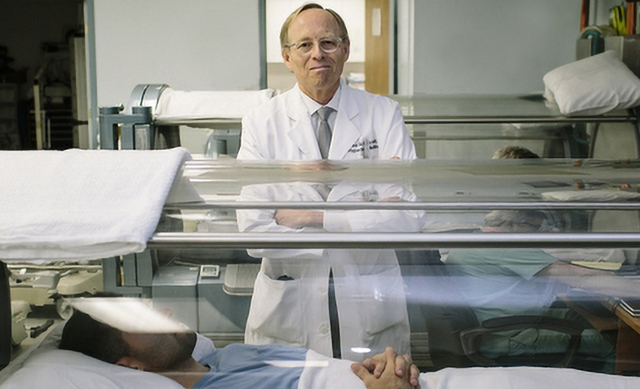Systematic Review Shows Level 1 Evidence And Grade A Practice Recommendation For Hyperbaric Oxygen Treatment Of Mild TBI Persistent Postconcussion Syndrome
April 05, 2022 (PRLEAP.COM) Health News
New Orleans, LA – A systematic review of hyperbaric oxygen therapy (HBOT) studies for mild traumatic brain injury (TBI) persistent postconcussion syndrome (PPCS) has found that treatment of patients who suffer with permanent symptoms after concussion experience improvement in their symptoms and cognition when treated with HBOT years after their concussion.The study was published by Dr. Paul G. Harch, Clinical Professor of Medicine at LSU Health Sciences Center New Orleans, in Frontiers in Neurology (available online).
Using the Centre for Evidence-Based Medicine (CEBM) grading and the American Society of Plastic Surgeons Grade Practice Recommendation systems the studies achieved the highest level of evidence and merited a Grade A Practice Recommendation: HBOT should be delivered to patients with persistent postconcussion syndrome unless a "clear and compelling rationale for an alternative approach is present."
The analysis focused on immediate post-treatment symptom and cognitive changes after a course of 30-40 HBOT treatments. The review found considerable heterogeneity in the studies, but the heterogeneity strengthened the conclusions. The scientific dosage analysis found that HBOT at 1.5 ATA (1.5 times atmospheric pressure) significantly improved symptoms, cognition, and quality of life in civilians and veterans years after their TBI.
The review contained multiple studies on veterans with blast-induced traumatic brain injury and found that HBOT also significantly reduced PTSD. Those veterans with TBI and PTSD, typically the most resistant to treatment, had the greatest improvement.
PPCS is the permanent medical condition that occurs in nearly 15% of concussed individuals and upto 44% of those with loss of consciousness. Concussed individuals experience headaches, dizziness, fatigue, irritability, short-term memory deficits, problems with attention, concentration, sleep disturbance, visual symptoms, anxiety, and depression. There is no accepted treatment for the condition.
The review showed a single course of HBOT had nearly identical improvements to the intensive treatment program of the National Intrepid Centers of Excellence where dozens of therapists and physicians deliver a wide range of therapies to U.S. war veterans with TBI and PTSD. HBOT had the additional benefit of relieving headaches, a marker of TBI identified by Department of Defense researchers. The HBOT findings were buttressed by functional brain imaging changes.
Hyperbaric oxygen therapy is a 360 year-old therapy that uses increased barometric pressure and increased oxygen to treat diseases. Using the scientific definition of HBOT and a dose analysis of pressure and increased oxygen Dr. Harch was able to clarify misinterpreted studies to show that pressure within a narrow range was the more important factor than the amount of oxygen which was effective over a broader dose range.
The study concluded that HBOT "has the potential to change the standard of practice in the treatment of PPCS and has substantial implications for millions of patients worldwide afflicted with PPCS, including military war veterans."
The Hyperbaric Institute is a 501c3 charity dedicated to education, teaching, and treatment with hyperbaric oxygen therapy.
